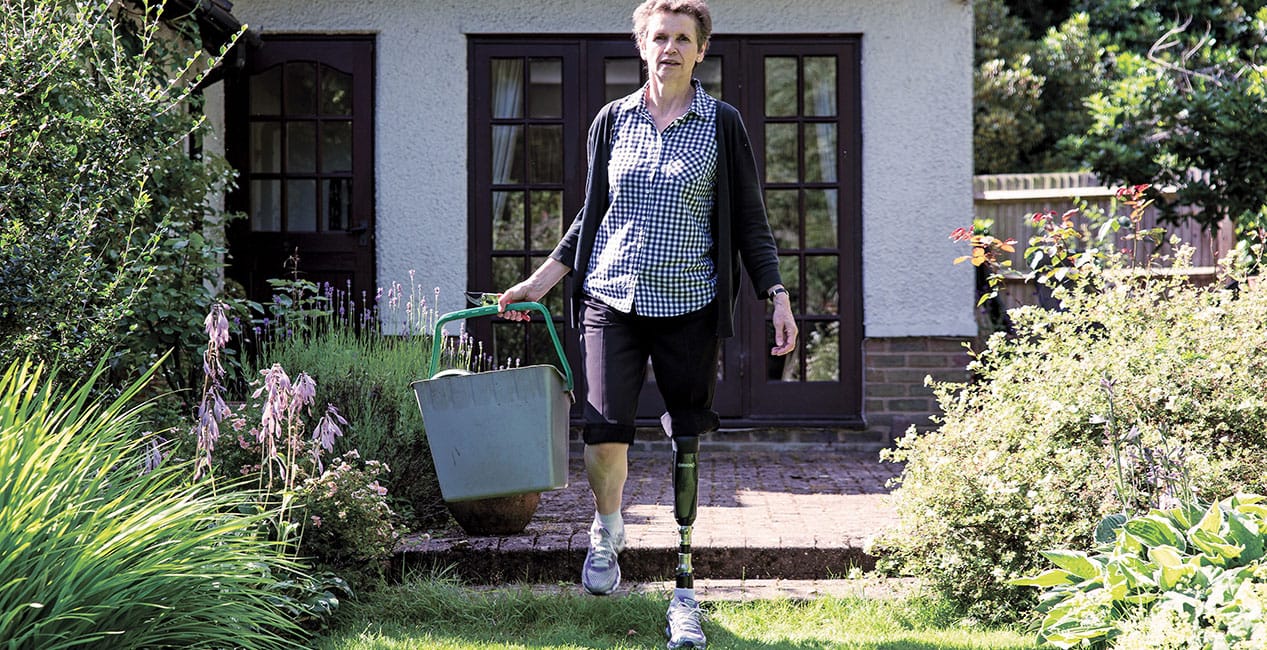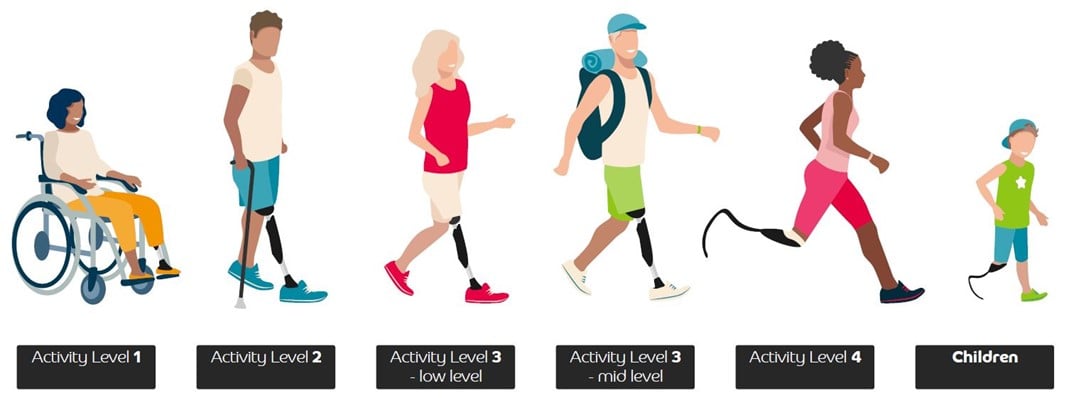What is an Activity Level?
There are many different activity scales used by different groups of professionals and different parts of the world.
Activity levels are a measure of what that person is capable of (in some markets, such as the United States, it is used when prescribing components of a higher level of activity as an indication of what that person has the possibility to achieve).
The prosthetist looks at an amputee's static and dynamic sitting and standing activities, as well as transfer and gait (pattern of walking) skills of progressing difficulty. Higher scores indicate better mobility.
Your physician determines your functional ability level. If your functional ability increases over time, your rating can be changed to a higher level.
How do you know what your activity level is?
Prescription Activity Level Guide
K1 Has the ability or potential to use a prosthesis for transfers or ambulation on level surfaces at fixed cadence. Typical of the limited and unlimited household ambulator
K2 Has the ability or potential for ambulation with the ability to traverse low-level environmental barriers such as curbs, stairs, or uneven surfaces. Typical of the limited community ambulator
K3 Has the ability or potential for ambulation with variable cadence. Typical of the community ambulator who has the ability to traverse most environmental barriers and may have vocational, therapeutic, or exercise activity that demands prosthetic utilisation beyond simple locomotion
K4 Has the ability or potential for prosthetic ambulation that exceeds the basic ambulation skills, exhibiting high impact, stress, or energy levels, typical of the prosthetic demands of the child, active adult, or athlete
Prescription Impact Level Guide
Low Daily walking and occasional sports such as golf and hiking
Moderate Aggressive walking, frequent or daily sports such as jogging
High Daily activities such as distance running, climbing, lifting and carrying heavy objects for vocational purposes.
_________________________________
Notes
- The maximum user weight/activity guidelines are available on our catalogue product pages and Clinician’s Manuals and give the ideal functional prescription. This may vary by region or reimbursement system. Our instructions for use provide structural safety levels which may differ.
- The weight limit on the complete prosthesis is determined by its lowest rated component.
- The weight limit applies to all products unless stated otherwise.
- Before assembly always refer to the appropriate technical information.


